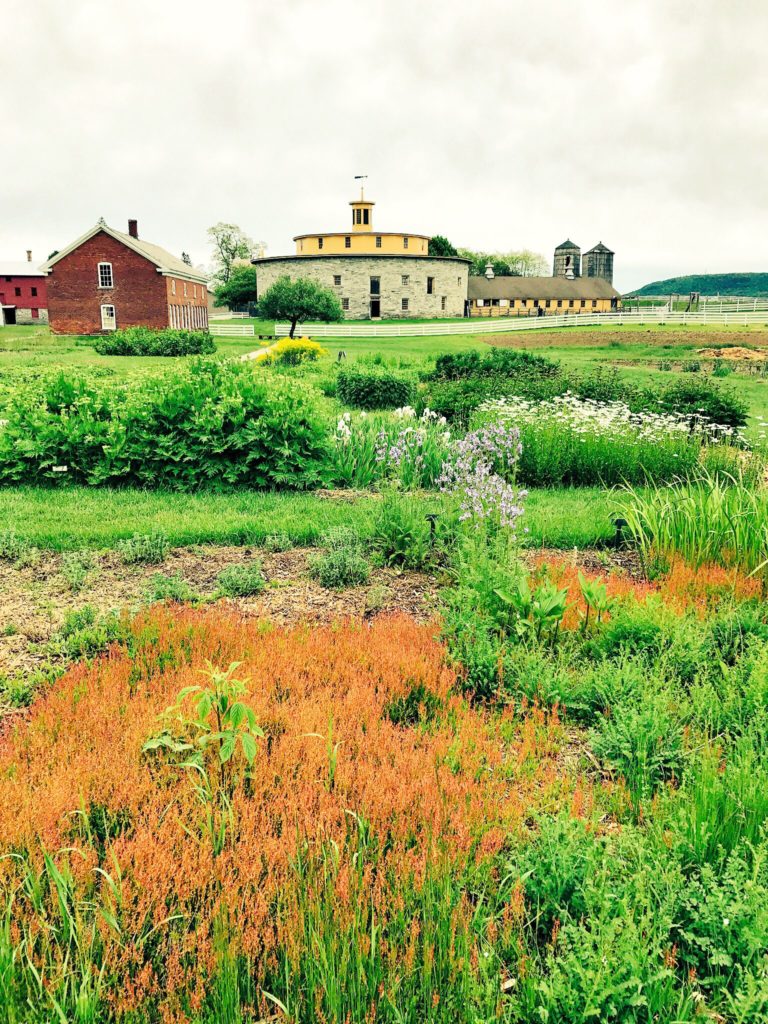
Entry view towards the Round Stone Barn, National Historic Landmark, 1826
“Simple Gifts”
“Tis the gift to be simple, ’tis the gift to be free
‘Tis the gift to come down where we ought to be,
And when we find ourselves in the place just right,
‘Twill be in the valley of love and delight.
When true simplicity is gained,
To bow and bend we shan’t be ashamed,
To turn, turn will be our delight,
Till by turning, turning we come ’round right.”
by Elder Joseph Brackett, 1848
Simple gifts like friendship, community, work, nature, even dancing as “turning” marks a step in a dance tune, were aspects of Shaker life that brought those in harmonious step back to the start of the dance, the place “just right”. Composed to sound like a folk song, this tune which also served as a hymn may seem familiar as Aaron Copland used it in “Appalachian Spring”. A wide-range of performers have recorded the song or used it as part of one of their works: Jewel, Judy Collins, R.E.M., Weezer, and the Toy Dolls. Take a few minutes to listen to the version Alison Krauss and Yo-Yo Ma, who perform each season at nearby Tanglewood, and Aaron Copland’s version, and you will realize how familiar it is. (Kindly bear with a few moments of You Tube ads prior to each.)
“Hands to work, and hearts to God”
As a living history museum, Hancock Shaker Village in the Berkshires of Western Massachusetts, a National Historic Landmark, holds talks and demonstrations throughout the day, sharing the music, craftsmanship, and other talents of the Shaker community. If you know “Simple Gifts,” but not much about the Shakers, the community came to the United States from England in 1774 to seek religious freedom. Founder Mother Anna Lee and her followers referred to themselves as the “United Society of Believers in Christ’s Second Appearing”. The name from “Shaking Quakers” is a description, not initially flattering, given by outsiders for the members’ animated physical expression during worship when they “shook off” sin. Dance was considered a form of worship. They did not marry and referred to each other as “sister” and “brother” in their familial communities with an estimated 6,000 members from New England through Kentucky by the mid-1800. Shakers are known today for their beautiful music, architecture, and furniture.
At its height, the Hancock Shaker community had 300 residents who peacefully co-existed and contributed to the surroundings towns through their sale of hand-crafted goods and furniture: “hands to work, and hearts to God”. At the largest Shaker village in the eastern United States, visitors can see as many as 20 buildings.
“City of Peace”
The Shakers believed in gender, ethnic, and racial equality as well as education working to create a pacifist “Heaven on Earth”. At a time when orphaned children had few options for care, the community took them in and educated them without obligation to remain, though some did.
At the community’s heart was the strikingly beautiful Round Stone Barn, built in 1826 and restored in 1968. Though practical in purpose, it was a working community barn. My first thought upon seeing it through the frame of the entry gate, surprisingly, was its similarity to the Taoist Temple of Heaven in Beijing. Though from different cultures and eras, the Shakers considered work to be a form of worship and the barn as a temple may not stray in concept. The interior of the barn is a harmony of line, space, and purpose.
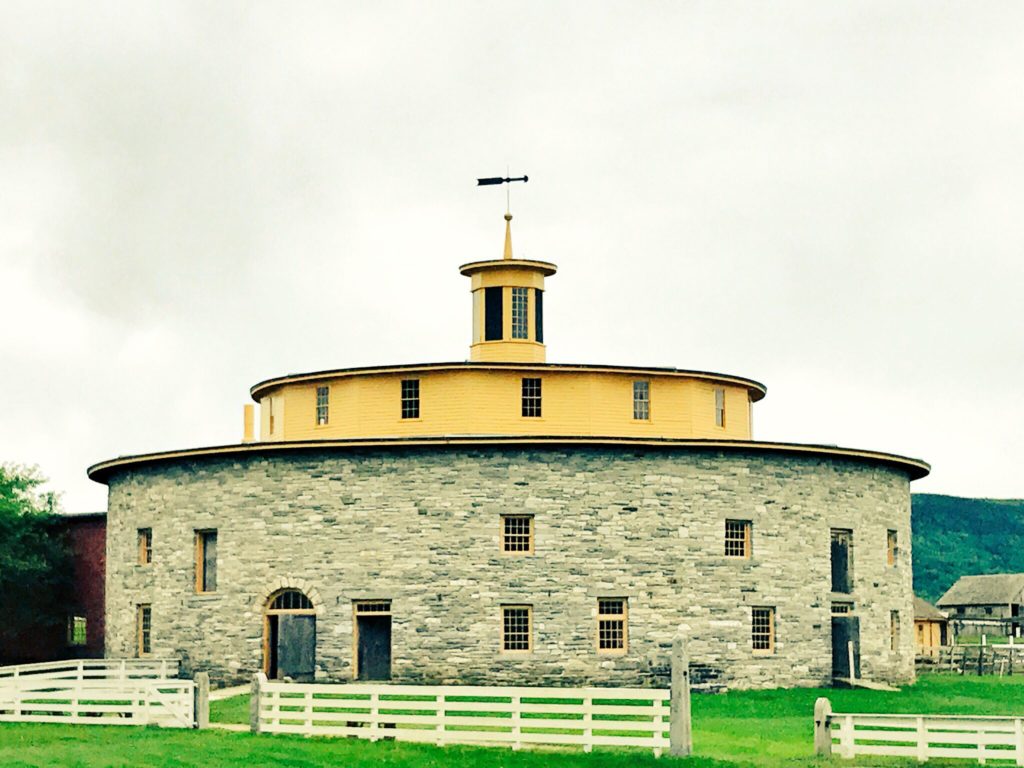
Round Stone Barn
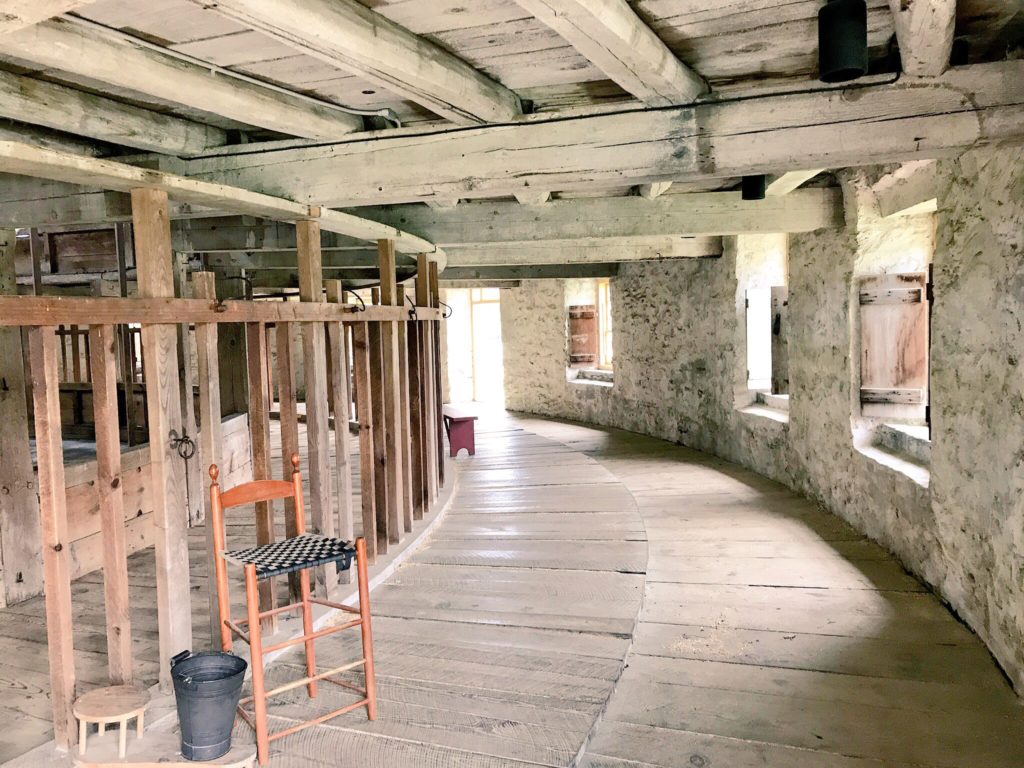
Round Stone Barn interior
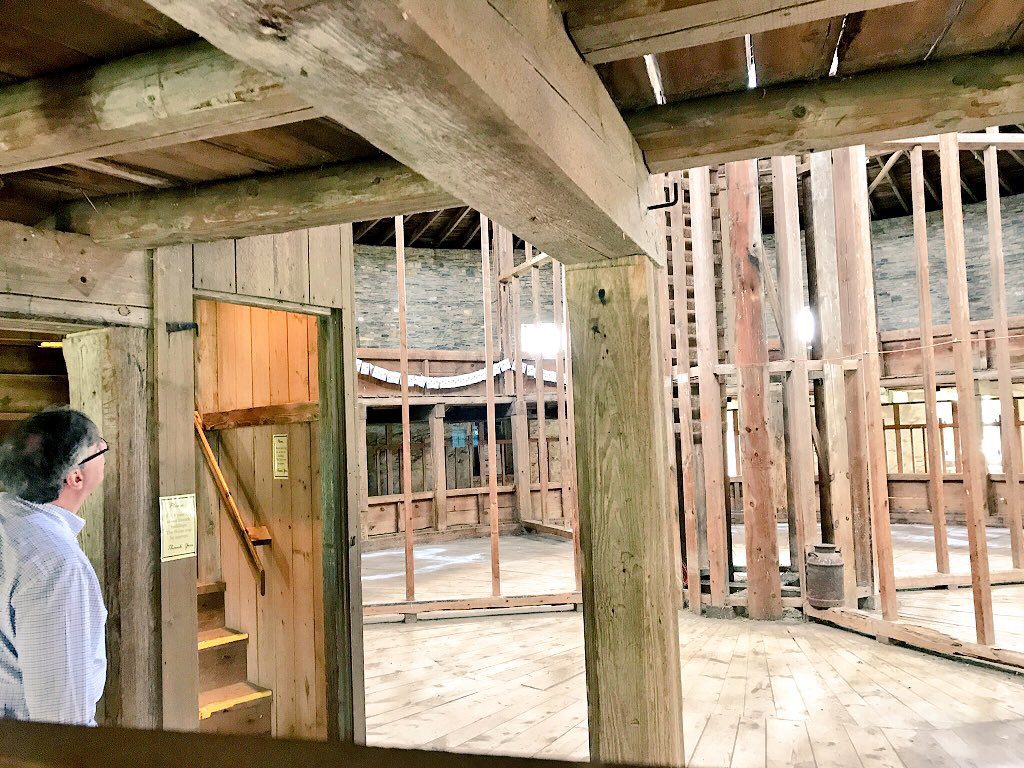
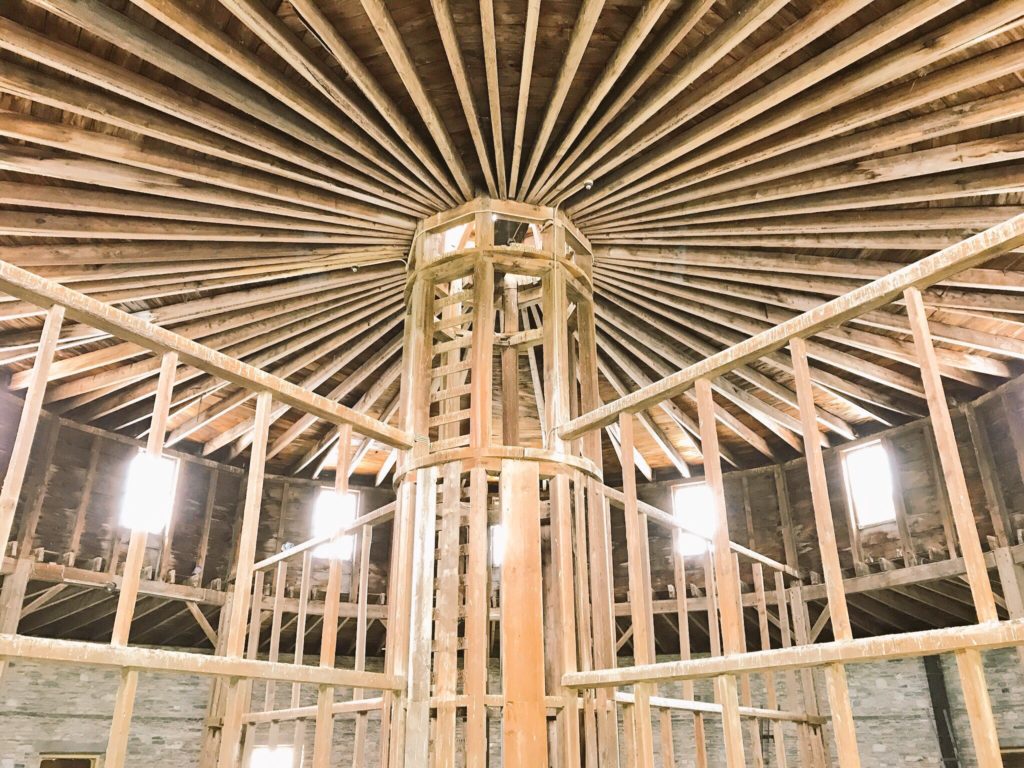
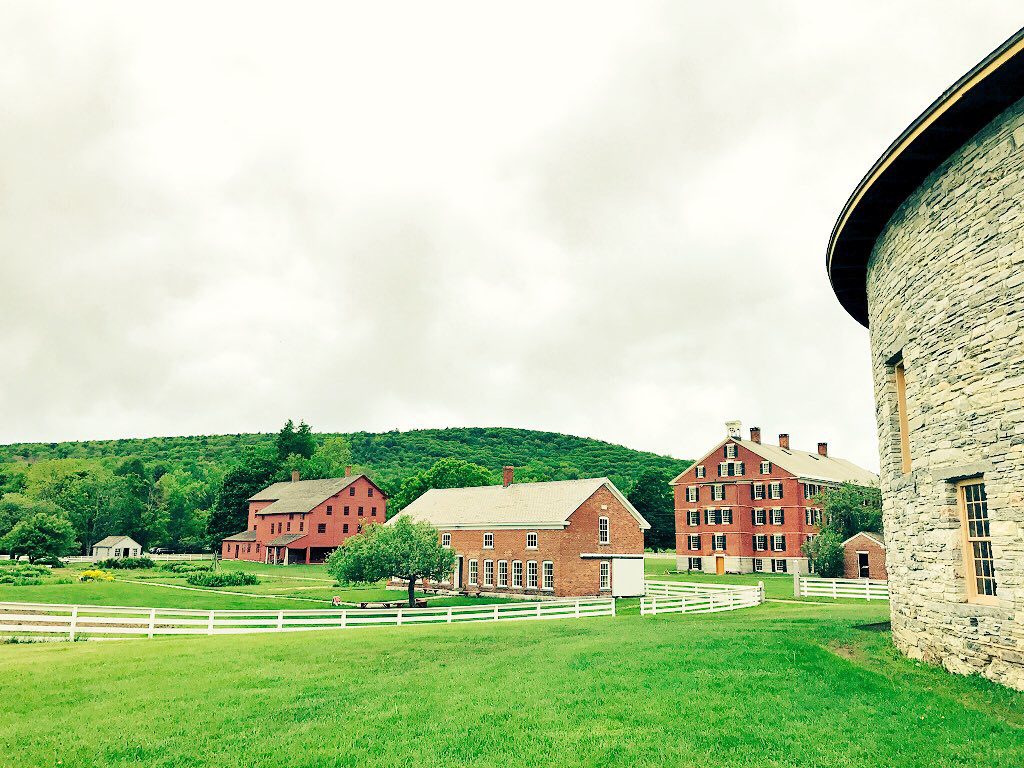
View of some of the other village buildings, both stately and charming
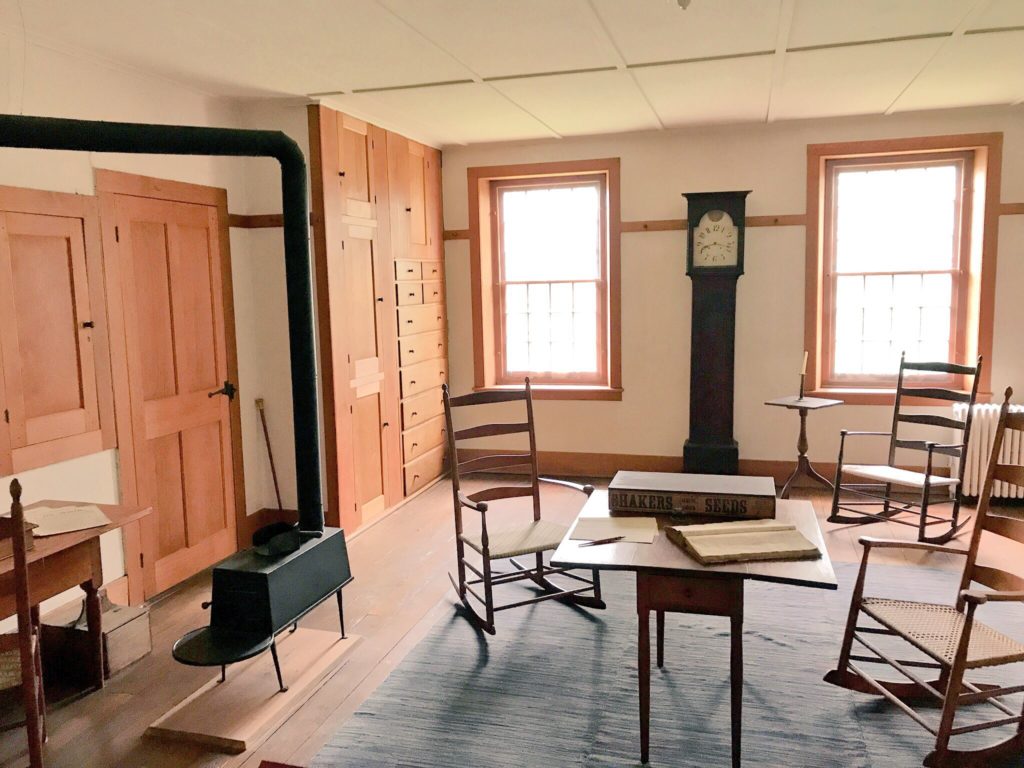
Interior views of residential buildings
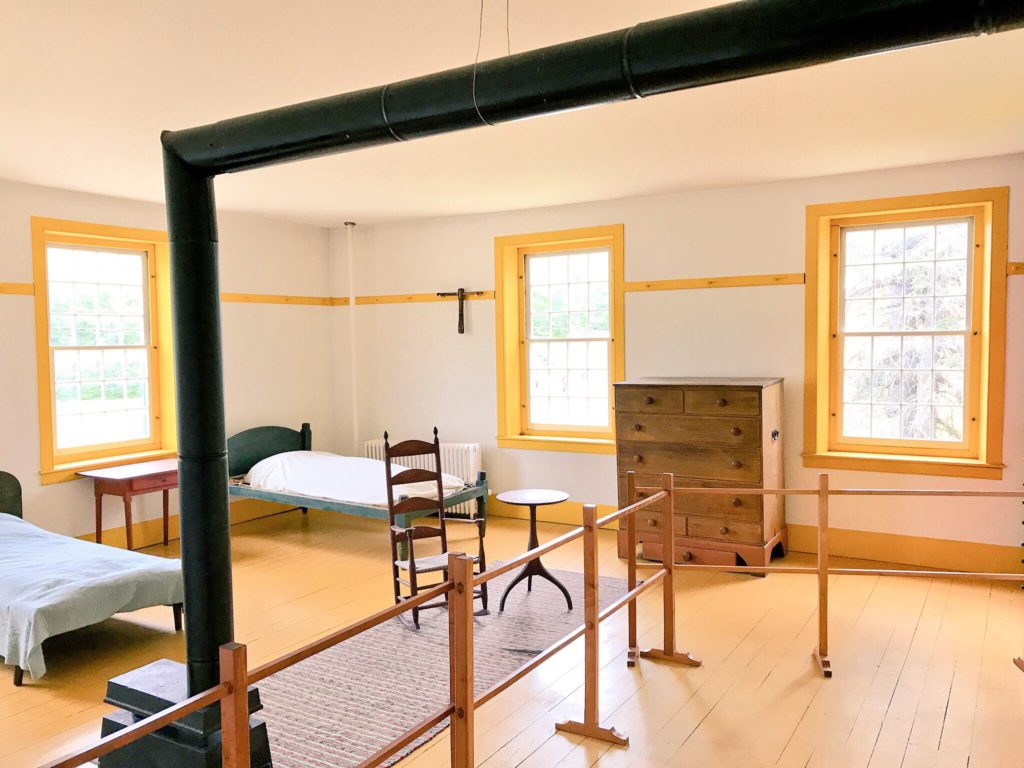
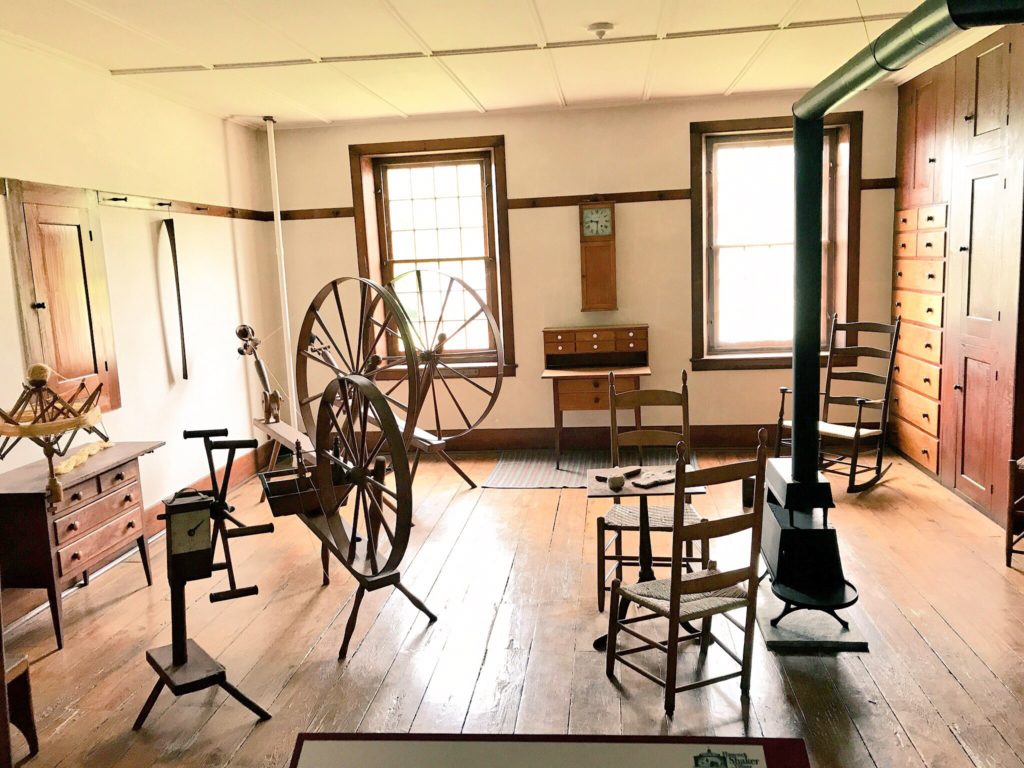
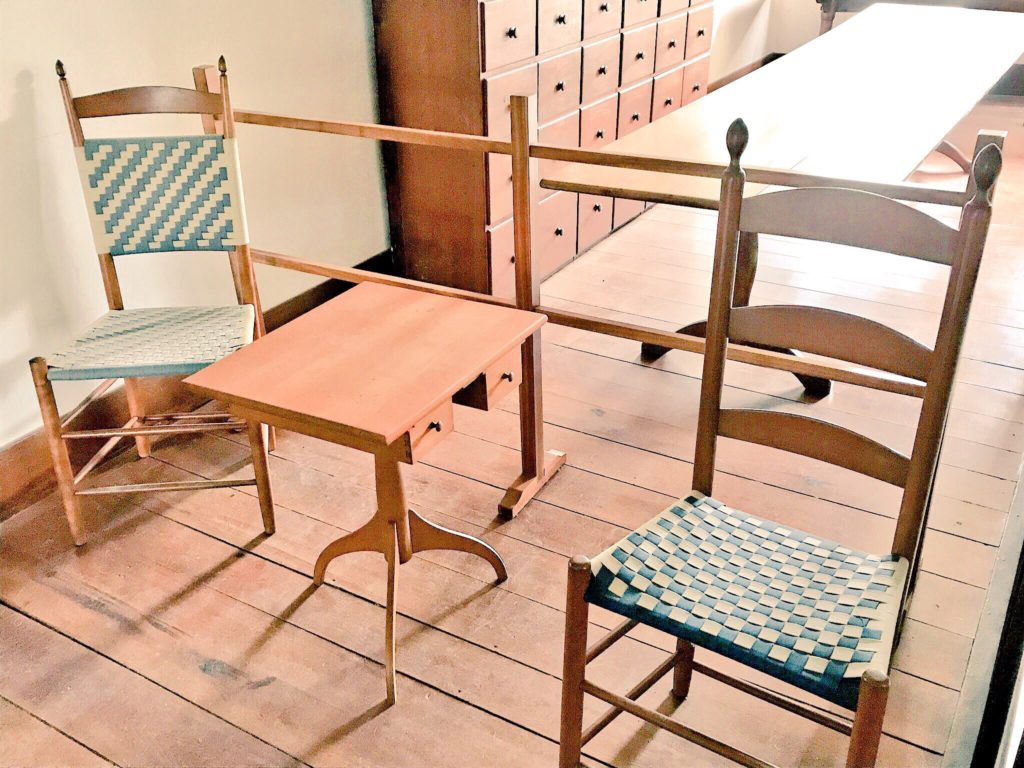
For long-time admirers of Shaker furniture, seeing this and all the elegant architecture firsthand will be a pleasure. A filmmaker’s dream, the doorways provided wonderful frames to view the landscape in different ways in a play on perspective. At the Stone Barn, my friend gamely complied to reenact John Wayne’s role in “The Searchers” in an irresistibly incredible door frame that would have set John Ford’s heart alight. On a quiet June day between school groups and summer tourists, we could indulge ourselves thanks to a professional staff that reflects the welcome serenity of the original community.
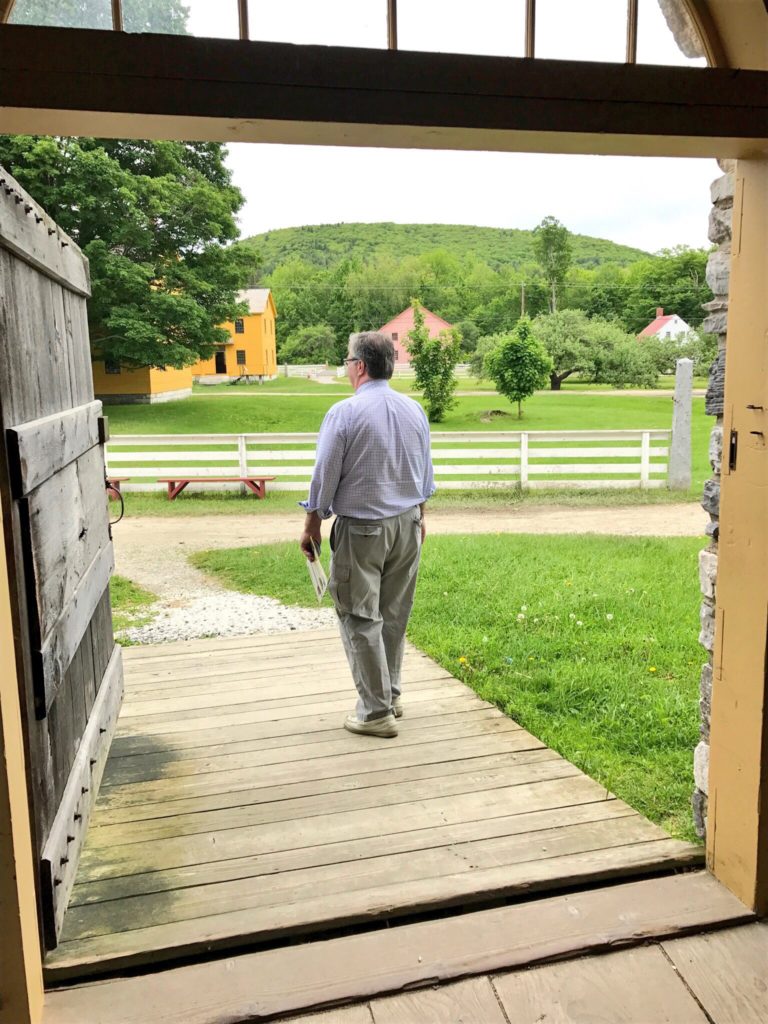
Reenacting the end of “The Searchers” 🎥
The charm of the village includes friendly animals that are part of the Discovery Center for children and the working organic farm that offers monthly “farm-to-table” dining with “Food for Thought” and organic farming community farming. Sweet miniature donkeys run up to greet visitors, clearly used to people. Though traditional farmers, the Shakers embraced technology. They did not file for patents, so inventive ideas like putting gardening seeds into paper packets for distribution and creating flat brooms and circular saws cannot be traced specifically to them. Today, there are still some Shakers living in Maine.
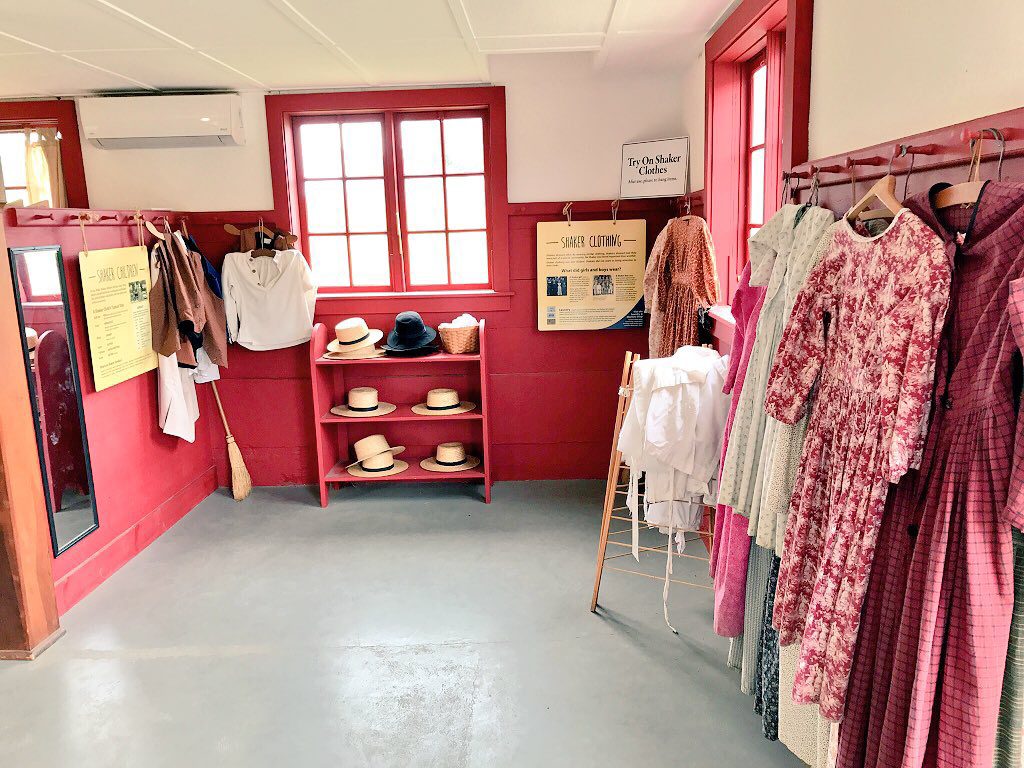
Children can wear clothes from the period, learn to weave, milk a cow, and tend to a beehive at the Discovery Center.
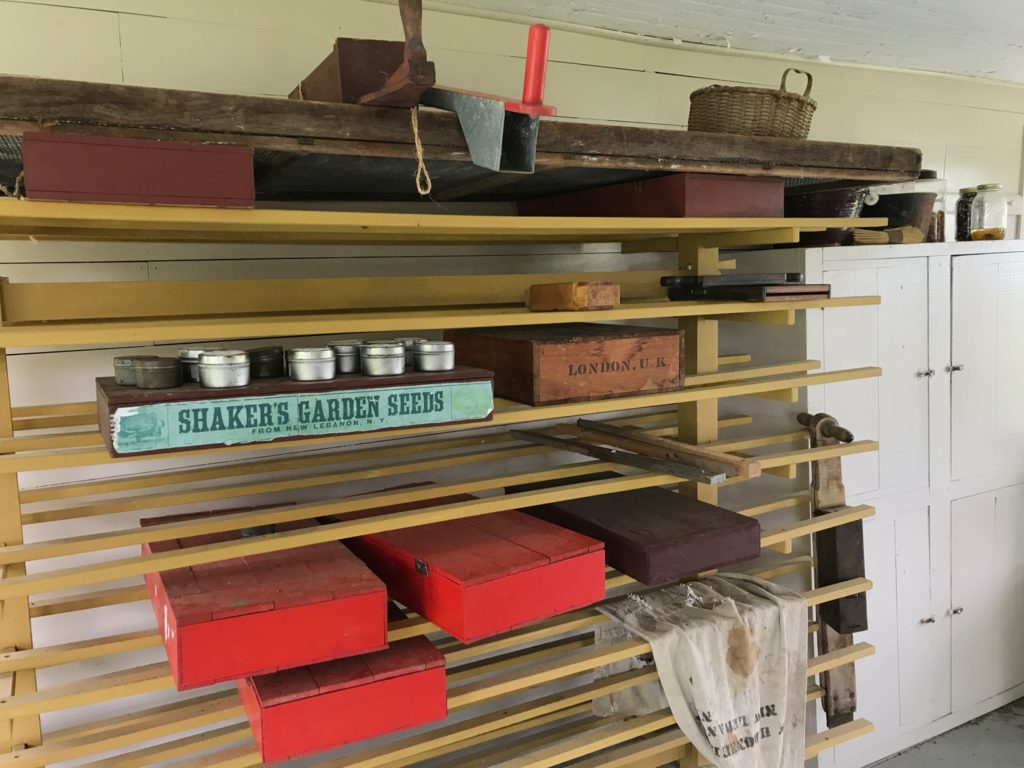
The Shakers may have originated the sale of garden seeds in packets.
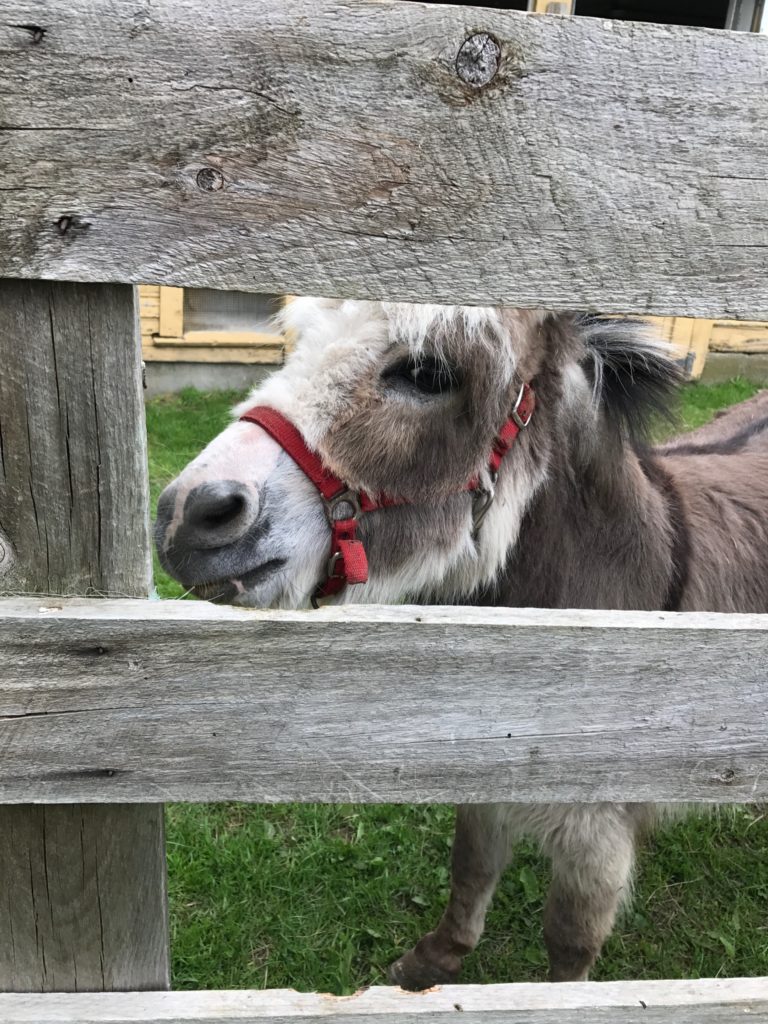
One of the adorable and friendly miniature donkeys. The barnyard animals are a delight for children.
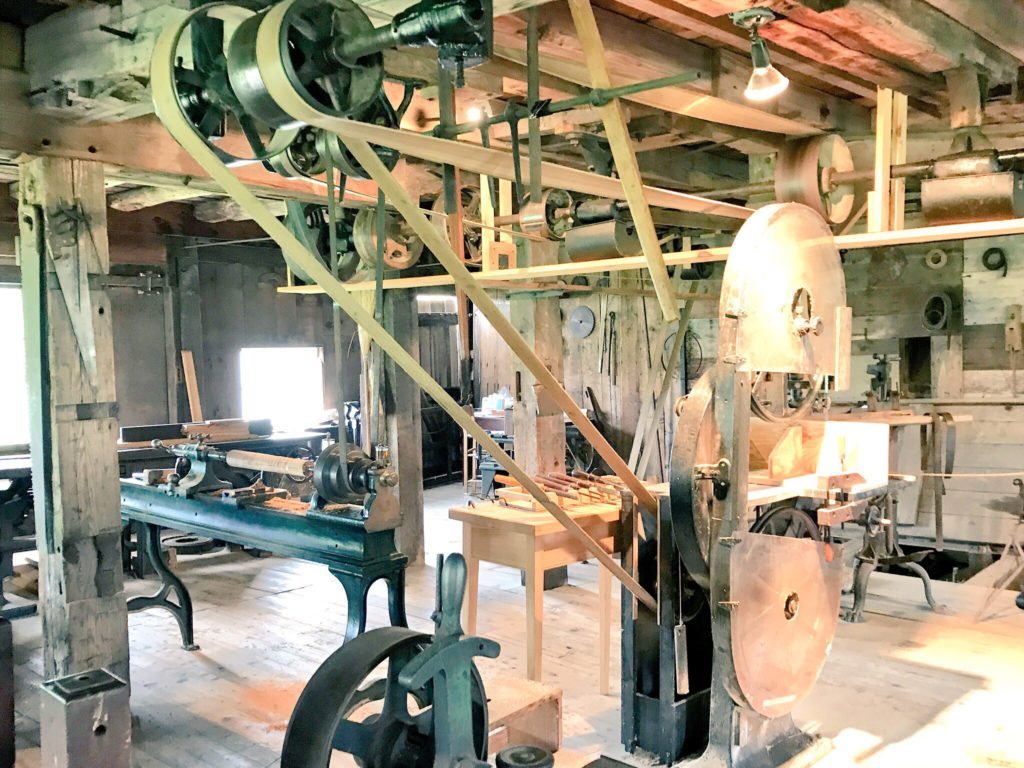
Furniture-making machine shop
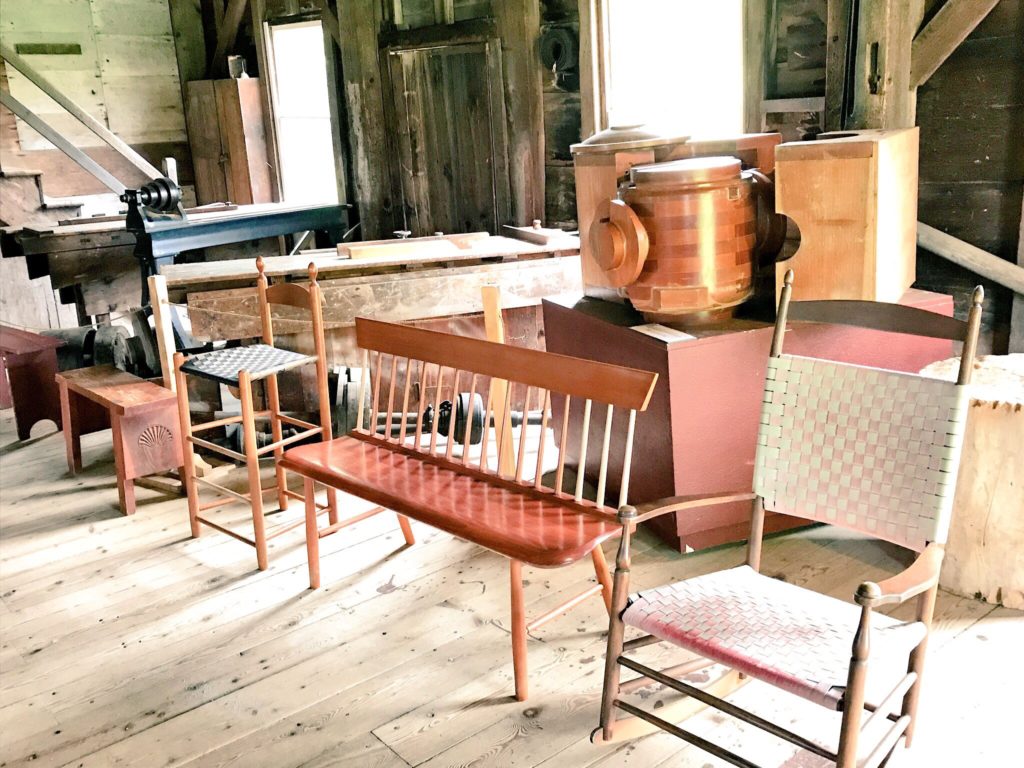
Newly made furniture
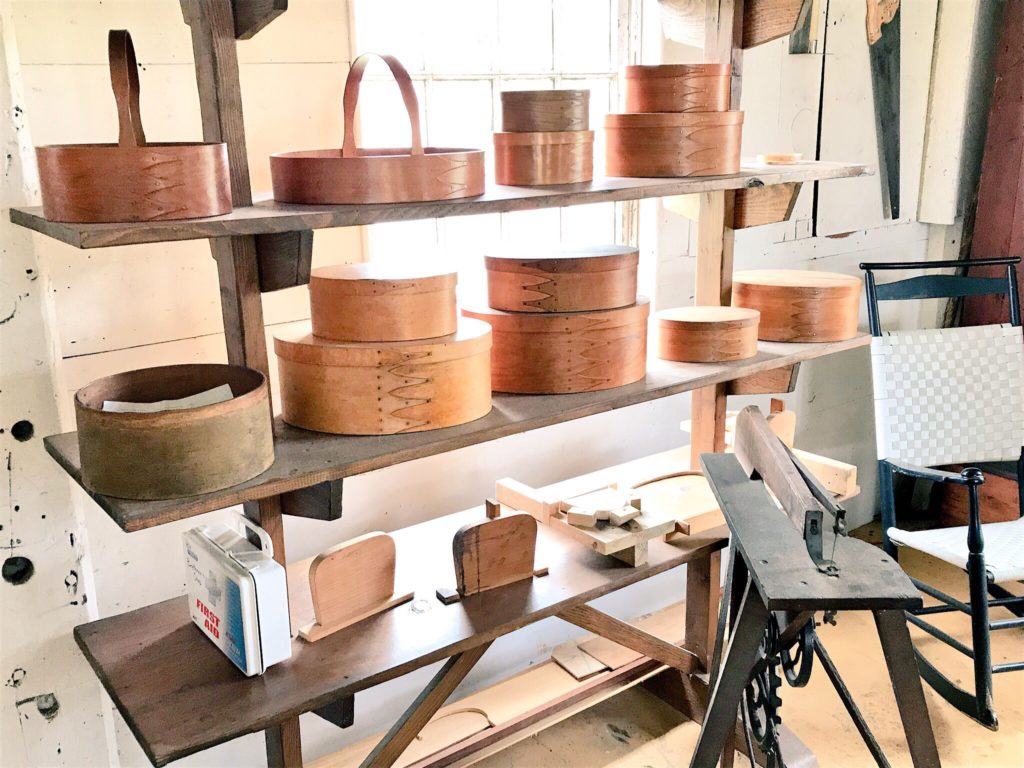
Beautiful and popular oval boxes
August 4th marks the annual Summer Gala. Though we actually visited last June, a revisit lends itself to mention this wonderful event that raises funds for the upkeep of this National Historic Landmark, which also features summer concerts in the Stone Barn, Shakerfest on August 18th, a Country Fair on September 29th and 30th. For more information on this site in Hancock (Pittsfield), Massachusetts, open daily 10-4 through the summer, Makers Days (crafting), recipes, premium tours for children and adults that include scary Halloween fun, online shopping, and ways to support, watch the orientation video, or also see the calendar of events. An excellent café is onsite. One tip to enjoy the visit is to wear good walking shoes as the grounds are extensive and the pathways are preserved to reflect the era. Reserve several hours to enjoy this serene and beautiful place.
(Sources: hancockshakervillage.org/, www.nps.gov/nr/travel/shaker/han.htm, Wiki)
“A Sunday with the Shakers” All Rights Reserved @ 2018 Kathleen Helen Levey
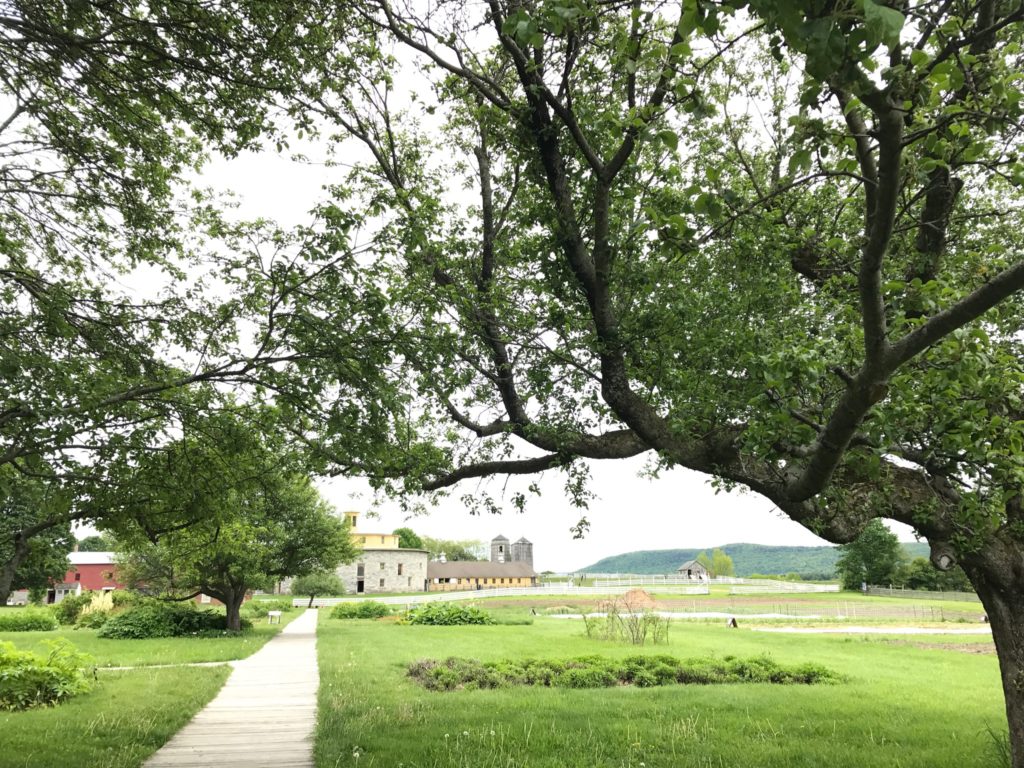
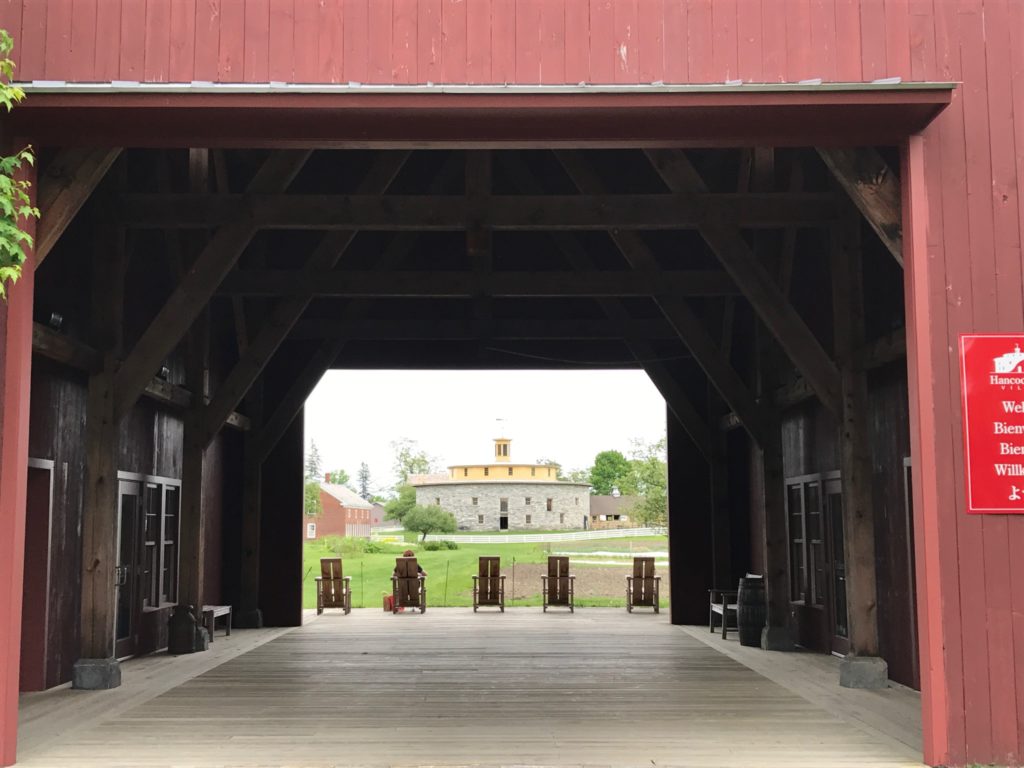
Village entrance
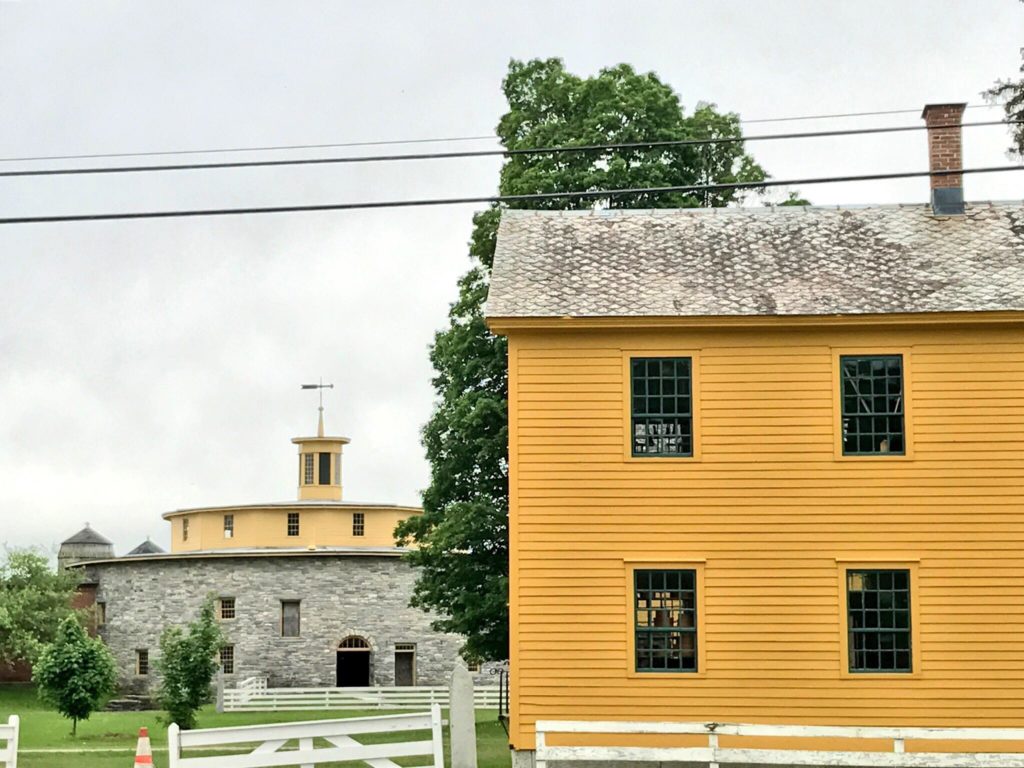
View from across the street
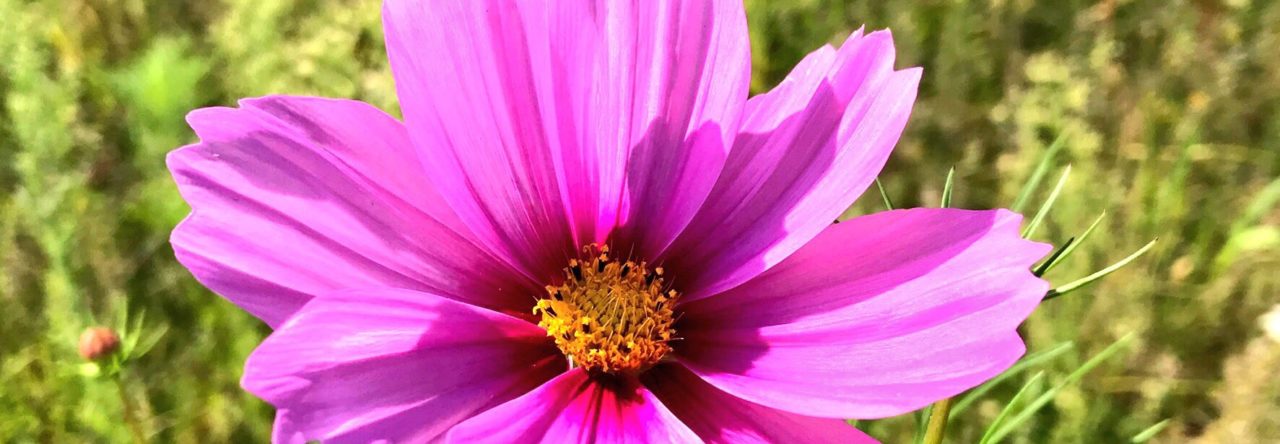
Comments are closed.